International Women’s Day serves as an important reminder of the ongoing fight against bias and prejudice that women face globally. As we reflect on this crucial theme, it’s essential to recognize and celebrate the women who defied gender expectations long before the rise of hashtags, playing a foundational role in the development of Israel. These were the pioneer women of the kibbutz and beyond, who contributed significantly to turning a vision into a thriving nation.
According to historical research by Professor Margalit Shilo, the pioneering spirit of women in pre-state Israel took root in the early 20th century. A notable early example of this was the Women’s Farm, established in 1911 near the shores of Lake Kinneret. This pioneering agricultural school, founded by Zionist activist Dr. Hannah Maisel, was dedicated to educating women in both agricultural practices and domestic skills, challenging traditional gender roles from the outset.
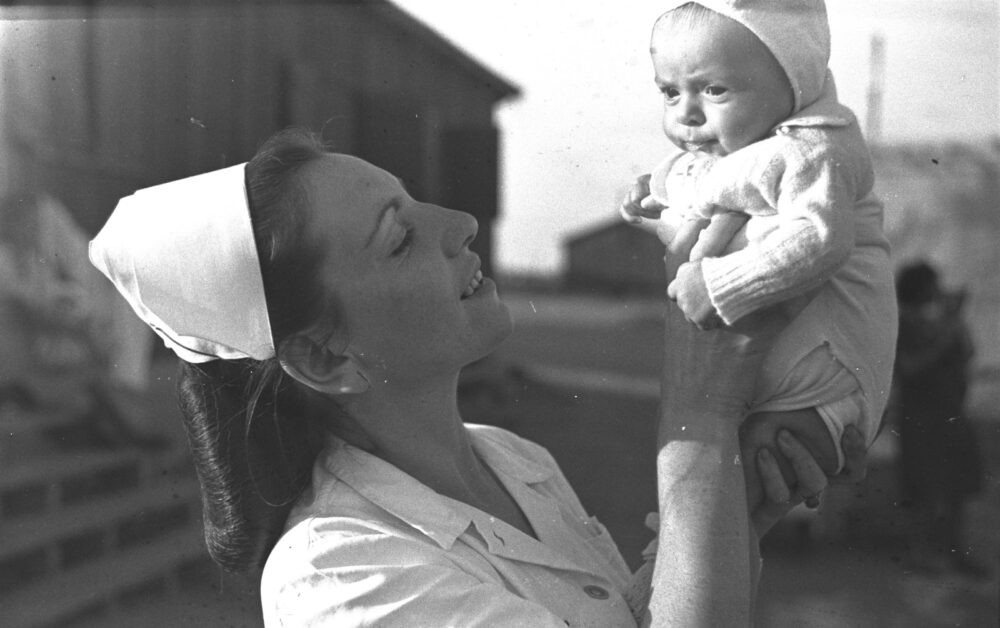 Nurse tending to a baby immigrant in 1949, highlighting women's caregiving roles in early Israel
Nurse tending to a baby immigrant in 1949, highlighting women's caregiving roles in early Israel
Despite the iconic images of pioneering women working the land, Professor Shilo points out that the reality was more nuanced. Within the kibbutz movement, women were not always readily accepted into agricultural roles. Instead, they were often directed towards what were considered more “womanly” tasks such as kitchen work, laundry, and childcare. This division of labor, while reflecting societal norms of the time, was not without its challenges. Feminist voices within the kibbutz movement actively advocated for greater gender equality, pushing for opportunities beyond these traditional roles.
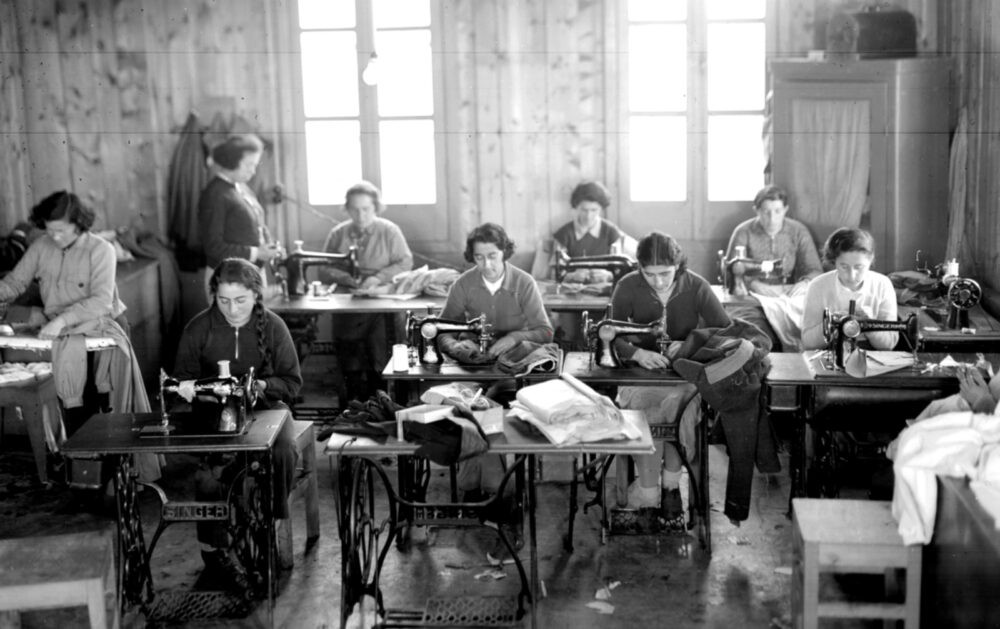 Women in the sewing workshop at Kibbutz Yagur in 1938, showcasing their contribution to kibbutz industries
Women in the sewing workshop at Kibbutz Yagur in 1938, showcasing their contribution to kibbutz industries
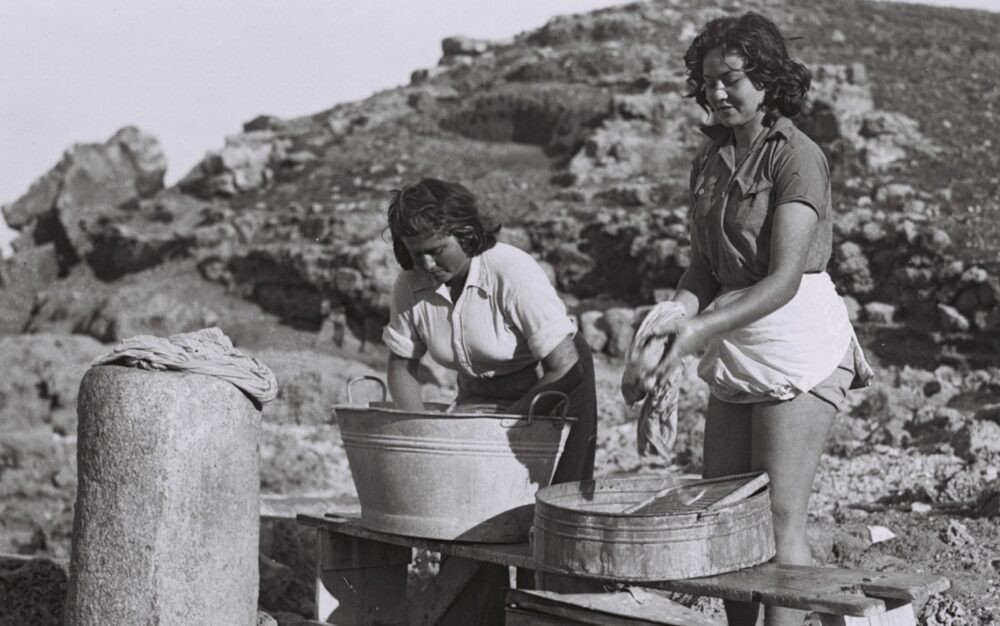 Kibbutz Sdot Yam members doing laundry in 1941 with ancient Caesarea in the background, depicting daily life in early kibbutzim
Kibbutz Sdot Yam members doing laundry in 1941 with ancient Caesarea in the background, depicting daily life in early kibbutzim
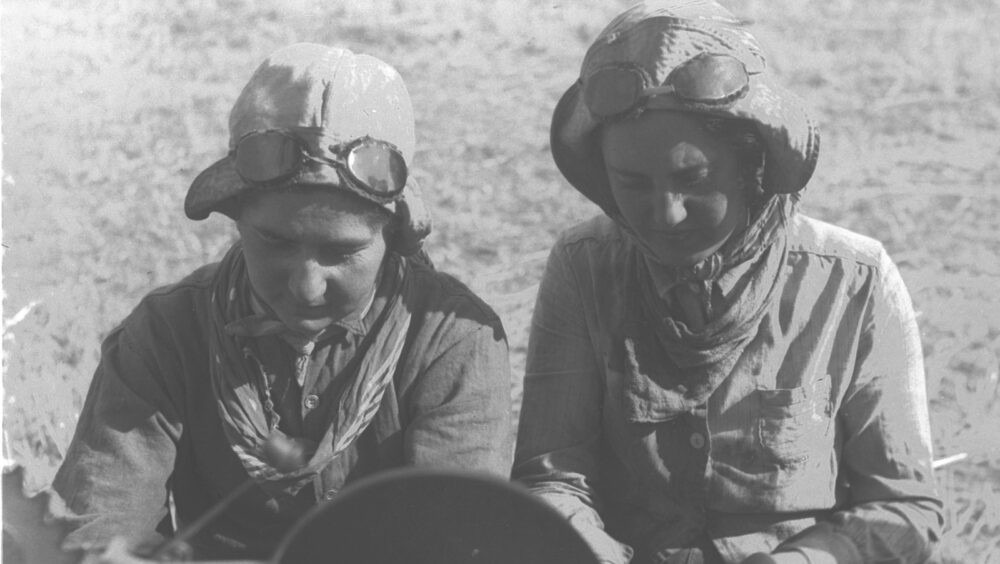 Women driving a combine harvester at Kibbutz Tel Amal in 1943, demonstrating their participation in agriculture despite gender norms
Women driving a combine harvester at Kibbutz Tel Amal in 1943, demonstrating their participation in agriculture despite gender norms
Beyond the kibbutz, in the urban centers of pre-state Israel, women were also making significant strides in the political arena. In 1919, a substantial group of Jewish women formed a women’s political party – a global first. This party was instrumental in advocating for women’s suffrage within national institutions, marking a pivotal moment in the fight for gender equality in the political sphere. Their efforts coincided with the establishment of an assembly of representatives, the precursor to the modern Knesset.
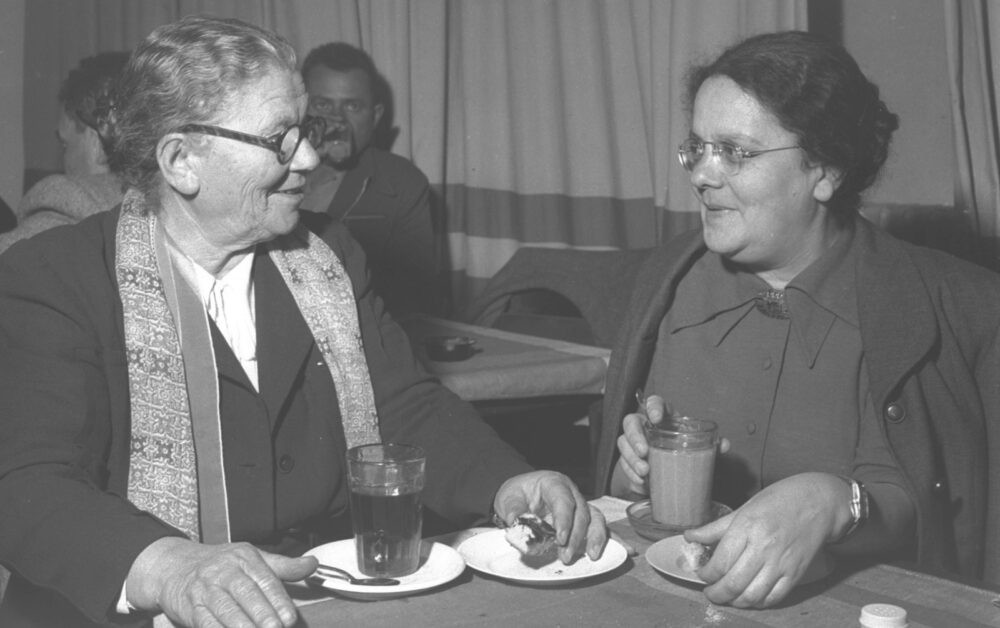 Knesset members Beba Idelson and Ada Maimon in 1952, representing women's early participation in Israeli politics
Knesset members Beba Idelson and Ada Maimon in 1952, representing women's early participation in Israeli politics
These pioneering women were successful in their political activism. In January 1926, the assembly granted women the right to vote and hold elected office. By the time the State of Israel was established, the principle of women’s participation in the Knesset was firmly established, a testament to their early struggles and victories. The first Knesset included 11 female members out of 120, and while the percentage remained around 10% for the first half-century, this early representation was a crucial step forward.
Furthermore, during the British Mandate period, a wave of highly educated Jewish women immigrated from Europe. This influx resulted in Israel having the highest global percentage of female physicians relative to male physicians, showcasing women’s significant impact on professional fields. Women pursued careers across various academic disciplines, even overcoming barriers in professions like law, where they were initially denied entry until 1930. Universities, while not always welcoming, also saw a notable presence of determined women.
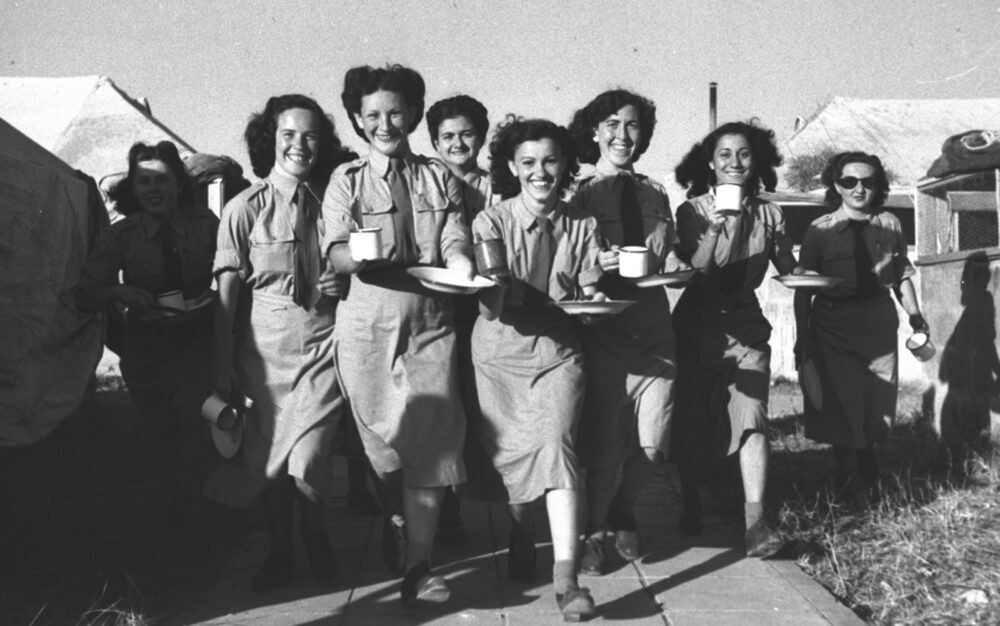 First members of the Chen women's division of the IDF in 1948, illustrating women's role in Israel's defense forces
First members of the Chen women's division of the IDF in 1948, illustrating women's role in Israel's defense forces
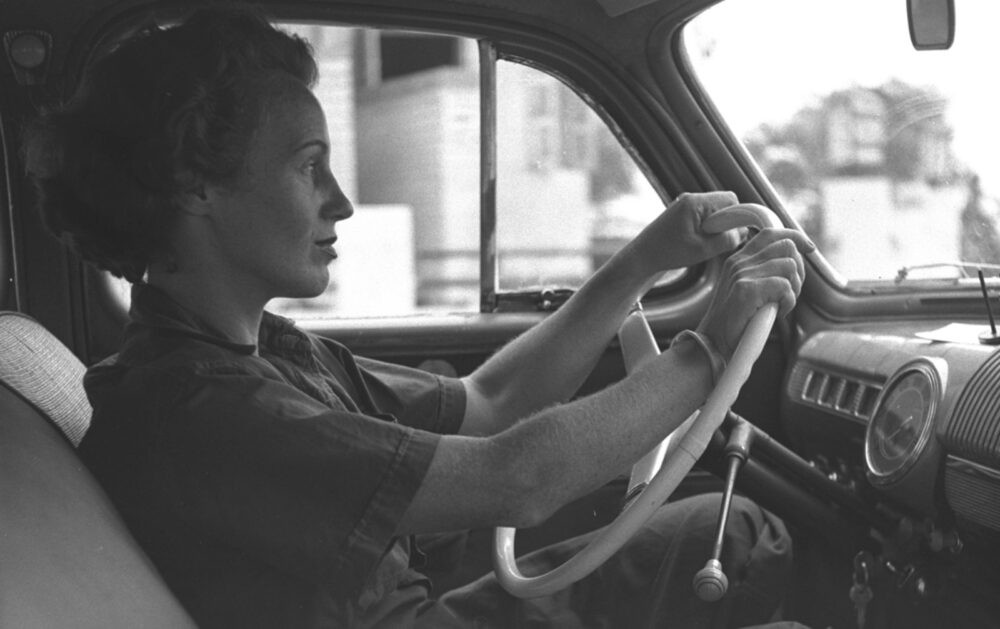 Woman taxi driver in Tel Aviv in 1952, breaking gender stereotypes in transportation and urban professions
Woman taxi driver in Tel Aviv in 1952, breaking gender stereotypes in transportation and urban professions
Education for girls and young women was prioritized in pre-state Israel, with schools opening their doors as early as the 1880s. Women played a vital role in the revitalization and spread of the Hebrew language, particularly through their work in preschool education, laying the linguistic foundation for the developing nation.
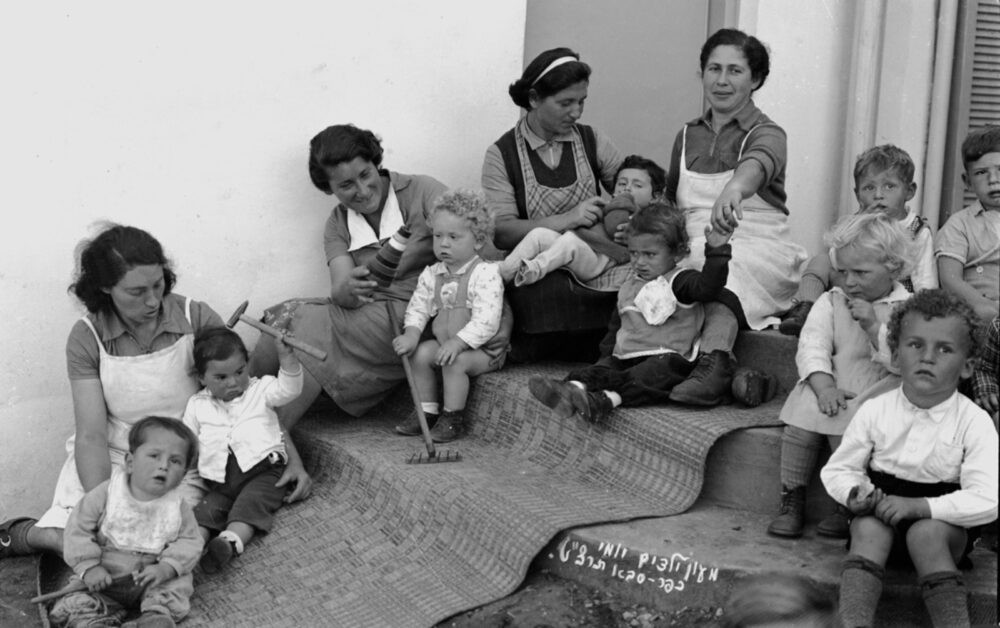 Preschool teachers in Kfar Saba in 1939, highlighting women's crucial role in early childhood education and Hebrew language dissemination
Preschool teachers in Kfar Saba in 1939, highlighting women's crucial role in early childhood education and Hebrew language dissemination
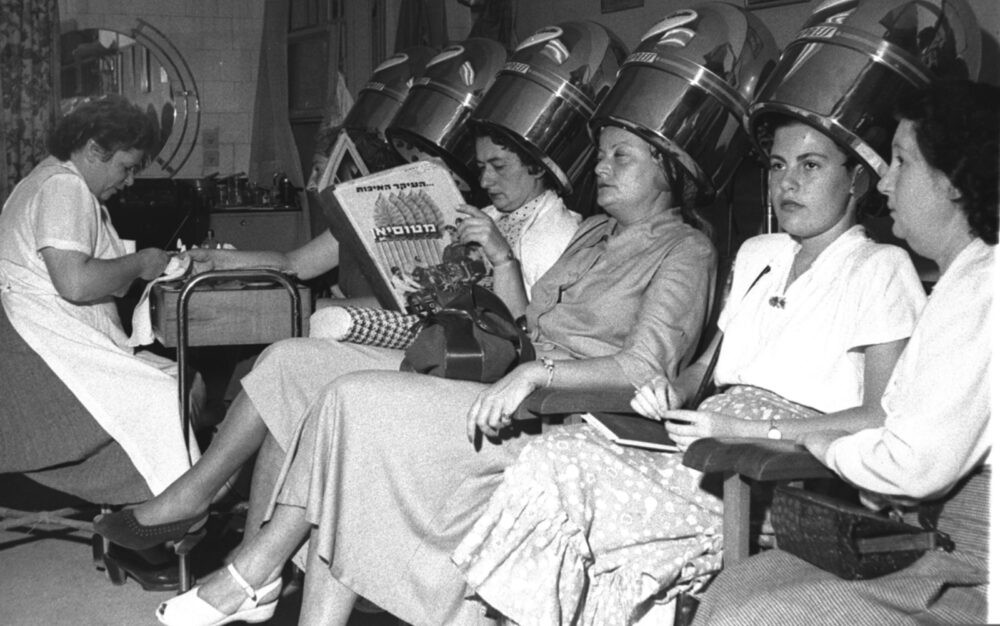 Women at a hair salon in Tel Aviv in 1951, depicting women in urban service industries and evolving social norms
Women at a hair salon in Tel Aviv in 1951, depicting women in urban service industries and evolving social norms
When considering the most influential pioneer woman of early Israel, Professor Shilo points to Henrietta Szold, an immigrant from the United States, rather than someone directly associated with the kibbutz movement. Szold, the founder of Hadassah, profoundly impacted Israel’s healthcare system and established institutionalized social services. Her work ensured crucial support for new immigrants during a period when resources were scarce. Szold’s dedication to healthcare, welfare, and education highlights the importance of these often-overlooked “womanly” fields in nation-building.
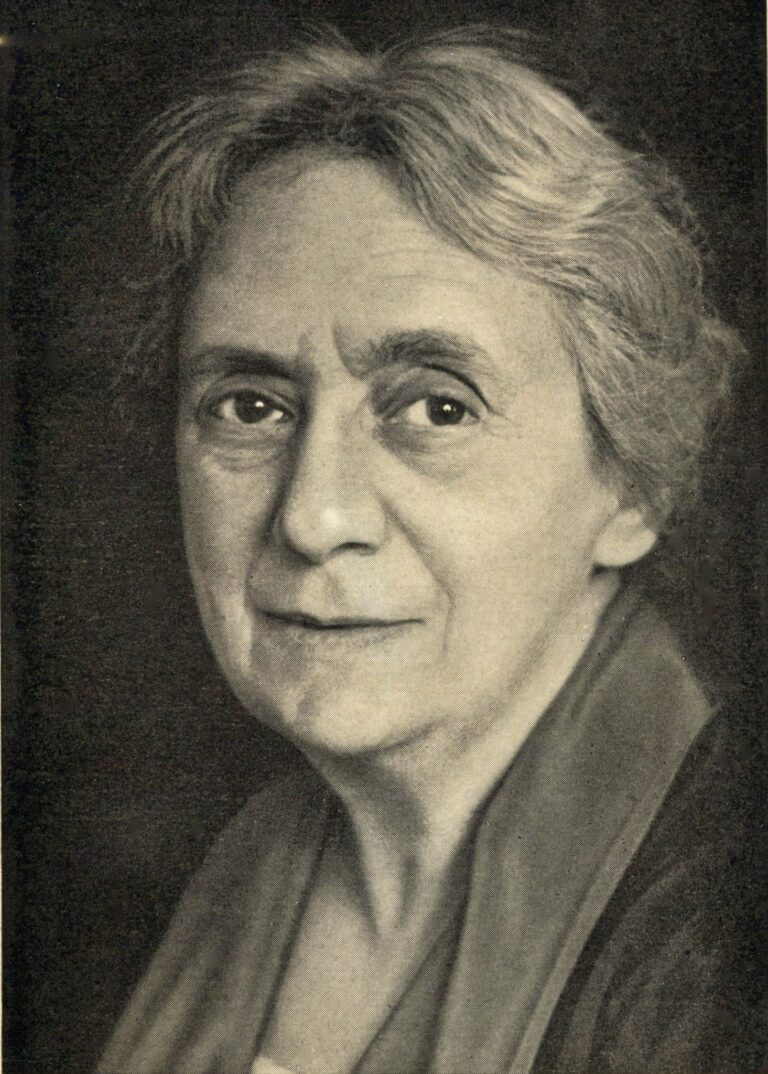 Portrait of Henrietta Szold in 1940, a key figure in developing healthcare and social services in Israel
Portrait of Henrietta Szold in 1940, a key figure in developing healthcare and social services in Israel
In conclusion, the pioneer women of the kibbutz and wider Israeli society demonstrated remarkable resilience and determination in shaping the nation’s early years. Whether in agriculture, politics, professions, or social services, their contributions were fundamental. They broke barriers, challenged societal norms, and left an enduring legacy that continues to inspire generations as Israel progresses towards greater gender equality and recognition of women’s pivotal roles in all aspects of society.
